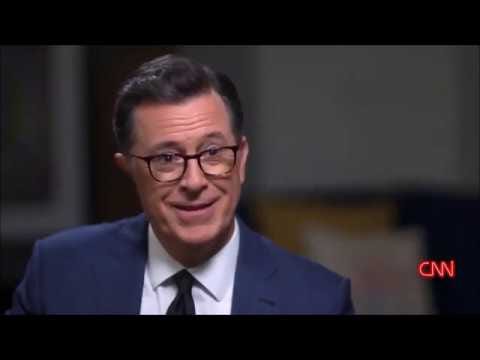I don’t know about you, but I have never been able to let go of a single thing in my whole entire life.
To quote David Foster Wallace “Everything I've ever let go of has claw marks on it.” Whenever I lose something, my brain goes into a tailspin about why and who is to blame, and none of it is helpful to anyone involved.
But lately, I’ve been trying to act like I’m the kind of person who accepts situations, doesn’t hold grudges and non-ironically says phrases like “it is what it is.” I used to think that fake it til you make it just applied to acting more confidently than you actually feel, but I’ve come to realize that it also applies to being nonchalant, when you are in actuality, supremely challant.
This approach to life can be summed up as amor fati, a latin phrase that translates to "love of fate" or "love of one's fate." It means that if you love the good things that happen to you, you have to love the bad things that happen to you too. Stephen Colbert put it beautifully in an interview with Anderson Cooper a few years ago where they were talking about the grief they both share of having lost a father and a sibling (two in Colbert’s case). “It’s a gift to exist,” Colbert told Cooper, “and with existence comes suffering. There’s no escaping that, but if you are grateful for your life, then you have to be grateful for all of it.”
I’ve been thinking about how grief relates to activism and our ability to keep going even when we lose crucial battles. I know that I’m least effective when I’m focussed on the loss, rather than the opportunity that the loss created. Reproductive rights is a great example of this. Was losing roe one of the most painful experiences of our lifetime? Sure. But did it pave the way for a better and more robust abortion rights movement that’s only grown and become more powerful since? That’s true too. While it’s easy to loop about the fact that the bad thing happened, it’s sort of delulu to get stuck there, and omit the good that can come out of tragedy, even if should have never happened in the first place.
Colbert says that instead of seeing grief as a trap, to instead see it as a doorway “because you’re going to be a different person on the other side of it.” We’ve all been changed by the wars we’ve fought and the love we’ve lost. The unspeakable violence unfolding in the Middle-East exemplifies this perfectly. I know that the images I’ve seen have changed me forever. I will never be the same, and you probably won’t either. And while I wish we collectively didn’t have to witness such atrocities, something important will happen as a result of those images finding us, even if we don’t get to see it in our lifetime.
Resisting what’s happening only delays the lessons that the present holds, and being bitter about the past just poisons our future. Let what wounded you, be the birthplace of something new. Love everything that happens to you.
x Liz
Before I go, I’m excited to announce that our next sharing circle will be Sunday May 5th at 9PT/12ET featuring the extraordinarily talented author Soraya Chemaly. She wrote a seminal book about female anger called Rage Becomes Her and has a new book coming out about how we develop coping strategies to survive in a politically charged world called The Resilience Myth: New Thinking on Grit, Strength, and Growth After Trauma. So mark your calendars! And be sure to be a paid subscriber so that you get access to the link when it comes out the night before! Your subscription helps pay the monthly rent for zoom, and cover the expenses of running our community and it makes a huge difference in helping me sustain the daily work of doing this newsletter!







The only real issue with going through atrocities like we are witnessing or losing rights like Roe is that only the living benefits from grief… a lot of people end up… dead. They don’t get to recover from anything on the other side. They are just dead, caused by the “don’t give a damn” actions of other people in power. Just… dead. Dead forever. No recovery, no coming to terms with loss.
Senselessly dead.
That’s what enrages me more than my own loss, the loss the living endure. It’s the dead. Tens to hundreds of thousands to millions (pandemic) of human beings who were just in the path of selfish people in power.
I have faith the living will find a way through, but the dead, their one and ONLY life, someone just took. Without remorse, without apology, without repair.
This post speaks to me so much. Thank you for sharing Liz! I’ve been on a roller coaster of a personal journey, healing trauma and dealing with challenge after challenge, and grieving things, people and a life that could have been. Themes of attachment and expectation are everywhere. Your post helped me also make the connection to my work, both in my profession, my community and social justice work. Exhaustion and burnout are a real doozy, and it can make you question if you’re on the right path. I’m learning that things aren’t happening TO me, but FOR me. The roadblocks, losses and challenges are meant for me to learn important lessons along the way. There is always something good, even in the bad. For me, the lessons I’m learning are the good. Hearing about others who are struggling with unnecessary suffering and processing these big losses is helping me. So thank you for sharing. You using your voice and platform is helping to bring people together to regroup and figure out another way to tackle these important issues, and learn the lessons we need to succeed. 💜